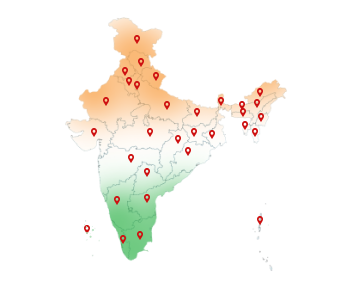29-Oct-2024
How Personal DSC for e-Commerce Helps Building Trust
E-commerce involves buying and selling products or services online and transferring money and data to execute these transactions. It has transformed how businesses operate and consumers shop, offering greater convenience and competitive pricing.
Moreover, e-commerce in India has grown rapidly, driven by increased internet and smartphone usage. However, with this growth comes the need for enhanced security, trust, and efficiency in online transactions. This is where personal DSC for e-commerce
online becomes essential.
It verifies the user's identity and protects sensitive information from fraud. Thus, it enhances trust between buyers and sellers, leading to more reliable online e-commerce business dealings.
Types of e-Commerce in India
1. Business-to-Consumer (B2C)
2. Business-to-Business (B2B)
3. Consumer-to-Consumer (C2C)
4. Consumer-to-Business (C2B)
5. Government-to-Business (G2B)
Key Components of Indian E-commerce
1. Online Marketplaces: Platforms where multiple sellers list their products, providing consumers with a wide variety of options.
2. Payment Gateways: Services that process online payments securely.
3. Logistics and Delivery: Efficient logistics and delivery networks are crucial for the success of e-commerce.
4. Customer Service: It is essential for addressing customer queries, returns, and complaints including call centres, email support, and live chat options.
5. Digital Marketing: Strategies to attract and retain customers, including social media marketing, search engine optimization (SEO), and online advertising.
Advantages of E-Commerce
1. 24/7 Shopping Access: Allows customers to shop anytime, anywhere with an internet connection.
2. Enhanced Convenience: Eliminates the need to visit physical stores, enhancing convenience for busy consumers.
3. Wider Product Range: Offers various products and services, expanding choices beyond local availability.
4. Easy Price Comparison: Enable effortless comparison of prices, features, and reviews to make informed purchase decisions.
5. Competitive Pricing: Often provides competitive prices due to reduced operational costs compared to traditional stores.
6. Global Reach for Businesses: Allows Indian businesses to reach customers worldwide, fostering international trade opportunities.
7. Broadened Market Reach: Increases market reach beyond geographical boundaries, tapping into diverse consumer demographics.
Potential Security Risks in E-commerce
1. Fake Websites: Fraudulent e-commerce websites and emails pretend to be real businesses to trick people into sharing private information like passwords or credit card details.
2. Data Breaches: Hackers exploit weaknesses to access sensitive customer data (e.g., payment information, and addresses.
3. Payment Fraud: Fraudsters intercept or manipulate payment data during transactions.
4. Identity Theft: Theft of personal data like names, and addresses for fraudulent purposes.
Consumers or retailers should use digital signature certificates to avoid these security risks in e-commerce. If you want to get your personal DSC for e-commerce, then you can get it from Capricorn CA.
Role of Digital Signature in E-Commerce
Personal DSC for e-commerce is used for various purposes including document signing and securing payments. These are:
1. It verifies the identity of the parties involved in online transactions.
2. Ensure that messages and transactions come from legitimate sources.
3. Encrypt information to prevent unauthorized access or tampering.
4. Eliminate paperwork by securely signing documents electronically.
5. Meet legal requirements for electronic signatures, ensuring transactions are legally binding.
6. Build trust by safeguarding sensitive information and ensuring secure transactions.
7. Obtain your Personal DSC for e-commerce to access these services.
Procedure of Digital Signature in E-Commerce
Below is the entire digital signature procedure in e-commerce:
1. Apply for a Personal DSC for e-commerce from a licensed Certifying Authority like Capricorn CA. Provide your details correctly including ID and address proof for verification.
2. The CA will verify your documents and provide a DSC token driver with a public and a private key.
3. Before signing, create the document's unique digital fingerprint (hash).
4. Use your private key to encrypt this hash, making your digital signature.
5. The recipient gets your public key to decrypt the hash.
6. They compare this decrypted hash with the document's computed hash.
7. If both match, the signature is verified as genuine, confirming the document is unchanged.
8. Sign contracts, invoices, and orders electronically to prevent unauthorized changes. Ensure secure online transactions, prevent fraud and ensure legal validity.
Conclusion
Personal DSC for e-commerce protects customer data and ensures secure transactions—providing peace of mind for both buyers and sellers. As online shopping grows, a DSC is a smart step toward safer, more reliable e-commerce. So, get Capricorn DSC today to secure your online purchases.


